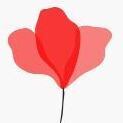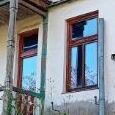SŁOŃCE I LEW NA ZAWSZE
-
Ostatnio w Warsztacie
-

Pan K. 40
Jedyne co po mnie zostanie
To te kilkadziesiąt wierszy
Poety amatora, samouka
Nie których bardzo ładnych
Innych zaś średnich lub kiepskich
Ale zawsze pisanych od serca
Z uczuciem, natchnieniem, pasją
Wiem, że nie będę nigdy wielki
Natomiast piszę je naturalnie
W kilka minut tworzę wiersz
Rzadko wprowadzam poprawki
Częściej koryguję błędy
I oto są i one - moje myśli
Przelane prosto na papier....
2
-
-
Najczęściej komentowane w ostatnich 7 dniach
-
- 58 odpowiedzi
- 1 448 wyświetleń
-
- 54 odpowiedzi
- 966 wyświetleń
-
- 54 odpowiedzi
- 978 wyświetleń
-
- 53 odpowiedzi
- 1 243 wyświetleń
-
- 34 odpowiedzi
- 569 wyświetleń
-











Rekomendowane odpowiedzi
Jeśli chcesz dodać odpowiedź, zaloguj się lub zarejestruj nowe konto
Jedynie zarejestrowani użytkownicy mogą komentować zawartość tej strony.
Zarejestruj nowe konto
Załóż nowe konto. To bardzo proste!
Zarejestruj sięZaloguj się
Posiadasz już konto? Zaloguj się poniżej.
Zaloguj się